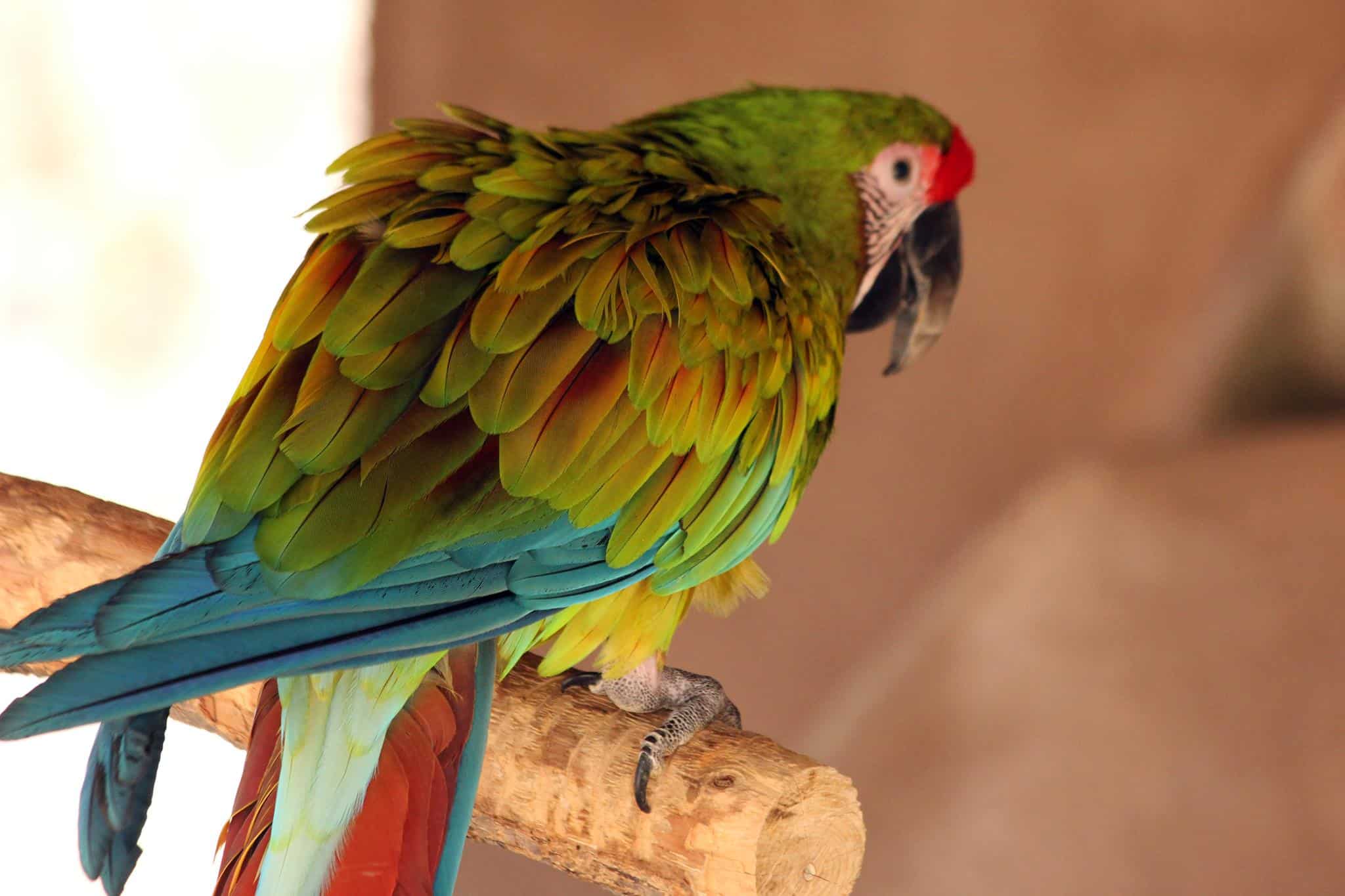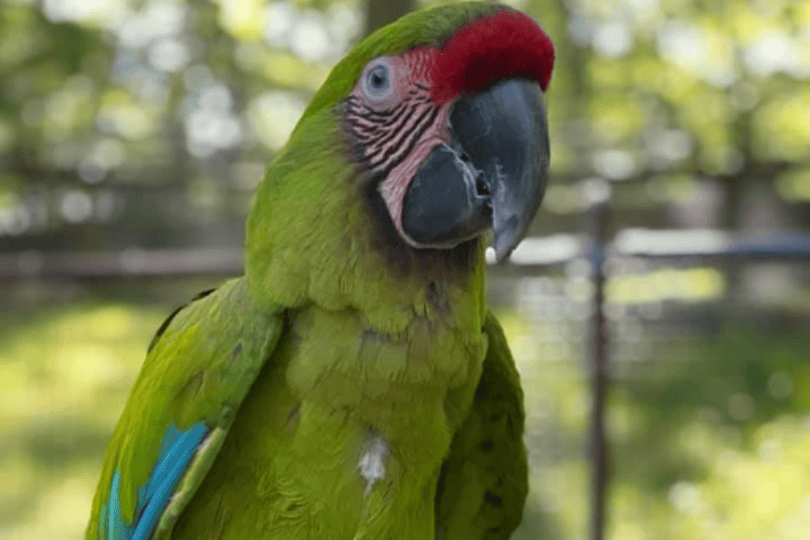Great Green Macaw
Ara ambiguus
Class: Aves Order: Psittacidae Family: Psittacidae
Size
Weight: 2.7-3.5 lbs
Lifespan
Lifespan (Wild): 50 years
Lifespan (Captivity): 60-80 years
Diet
Nuts, seeds, and fruit
Habitat & Range
Wet, humid forests of Central America
Interesting Facts
This species bears a strong resemblance to the similarly colored military macaw. Great green macaws can be distinguished by their larger size.
They use their powerful beaks to crack open the shells of nuts. Macaws are messy eaters and often drop pieces of food. For this reason, they play an important role as seed dispersers.
In the wild, macaws often gather at clay licks. It is speculated that they eat clay to help reduce toxins from certain foods they eat and as a source of certain minerals.
It is estimated that there are fewer than 2,500 mature Great Green Macaws remaining in the wild. This species is greatly threatened by loss of habitat due to logging, mining, agriculture, and urbanization. They are also threatened by the pet trade. Macaws are protected by the US Bird Act of 1995, which made the capture and sale of these birds in the US prohibited. While this act has reduced the number of birds taken from the wild, it has not stopped it.



Conservation Status
Endangered
Threats
This species is greatly threatened by loss of habitat due to logging, mining, agriculture, and urbanization. They are also threatened by the pet trade.
